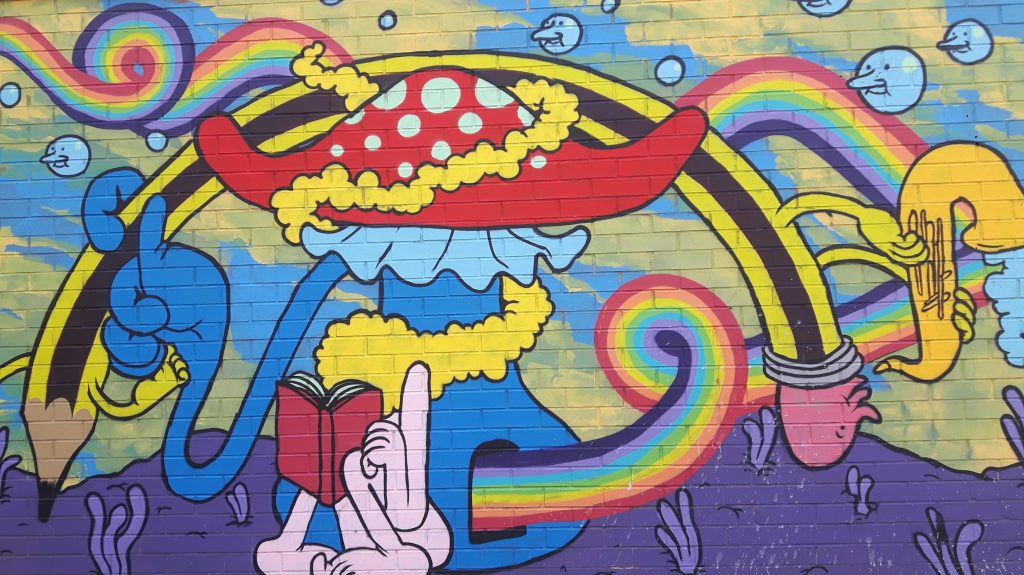This post is also available in Dutch.
Psilocybin, the trip-inducing substance in “magic mushrooms,” is illegal in most countries due to a supposed high potential for abuse and unaccepted medical use. A new study, however, paints a different picture: psilocybin may treat depression more effectively than any commonly used treatments. And it does so with relatively little side-effects and addiction liability.
Psychedelic research is on the uprise again
Since being outlawed in the US in 1968, the study of psychedelic substances like psilocybin has plummeted worldwide. In recent years, however, the research interest in these substances has increased because they consistently invoke consciousness-altering experiences and significantly alter the activation of certain brain regions. Most recently, this interest has culminated in the legalization of psilocybin in Oregon for supervised use in therapeutic settings.
In 2016, one of the studies that demonstrated this therapeutic effect found that psilocybin was effective in reducing feelings of depression and end-of-life anxiety in cancer patients for over six months. Now, a new study has achieved similar results in major depressive disorder (MDD), which is characterized by a pervasive low mood for at least 2 weeks. This is much needed as up to 30-50% of MDD patients do not, or do not fully, respond to treatment. Moreover, the COVID-19 pandemic is expected to substantially increase depression, which further increases the urgent need for effective treatment.
Psilocybin had a four times larger effect than traditional antidepressants
The new study consisted of 24 participants who each received two five-hour psilocybin sessions that were guided by two facilitators who could respond to their emotional needs. During these sessions, the participants would take the psilocybin and then lie down on a couch with eye-masks and headphones on. They were then encouraged to pay attention to their thoughts and feelings, which under the influence of psilocybin may be stronger, unusual, and more meaningful1.
The depression score rating of participants was moderate-to-severe before the session and absent-to-mild after. Overall, the effect of psylocybin was 2.5 times larger than conventional psychotherapy and even 4 times larger than anti-depressants. Furthermore, these effects took hold right after a session, whereas other treatments mostly take weeks or months to work.
A game-changer for depression and psychedelic research
While these promising results have to be confirmed in studies with a longer duration and more participants, psilocybin may be a much-needed game-changer in psychiatry. It may also pave the way for research into other psychedelic substances.
Although life with depression can seem hopeless, this study suggests that there may be some hope still. Science continues to find novel ways of treating disease, and this class of substances has the potential to console a lot of suffering worldwide.
1 In an earlier study, 80% of the participants reported that a psilocybin experience was among the top 5 most meaningful experiences of their lives.
Original language: English
Author: Jeroen Uleman
Buddy: Felix Klaassen
Editor: Marisha Manahova
Translator: Ellen Lommerse
Editor Translation: Jeroen Uleman
Photo by Cas Holmes on Unsplash
